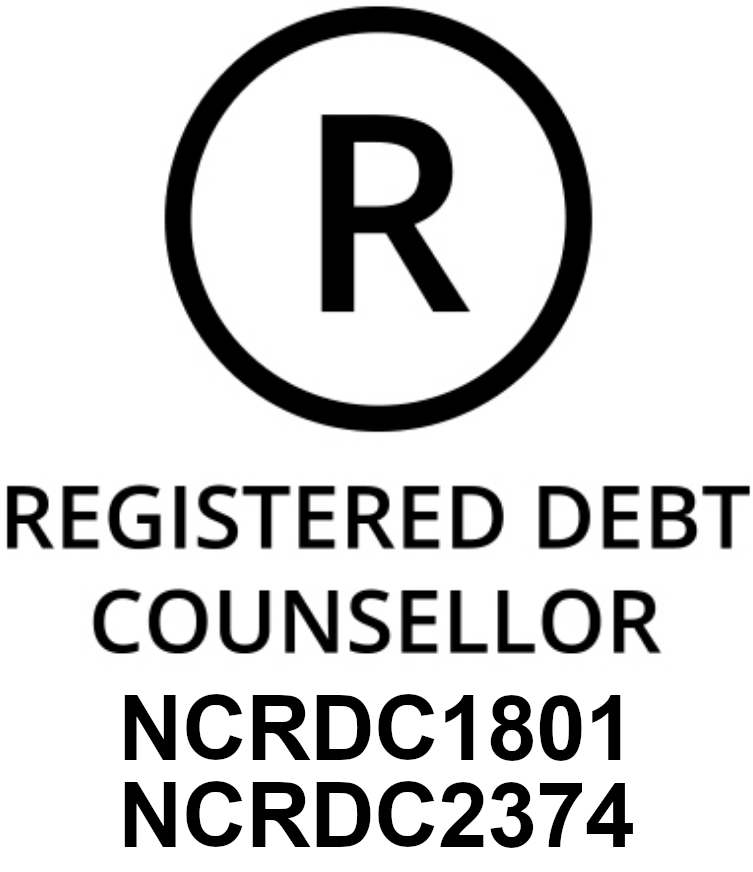Credit is one of the most important parts of modern capitalism. It helps the economy run smoothly and encourages business. But credit lets people spend money they don't have, spend more than they earn, and use debt to pay off debt.
People often get too much debt because they use credit and don't know how to handle their money well. This makes it hard for them to keep their credit agreements. In this guide, we’ll be discussing the National Credit Act (the NCA) in order to help you understand your rights and responsibilities when it comes to credit in South Africa.
What is the National Credit Act (NCA)?
The NCA protects consumers who sign a credit agreement with a credit provider. A credit agreement can be a credit card, an overdraft, a store card, a personal loan etc.
The NCA applies to all credit agreements that are in effect or made in South Africa between consumers and credit providers who are not related to each other. When a consumer signs a credit agreement, they should carefully read the terms and conditions to make sure that they know exactly what rights they have under the agreement.
A few notes on the NCA:
- Replaces the Usury and Credit Agreements Acts
- Is consumer-focused (initially entitled the Consumer Credit Bill)
- Increases the availability of credit and reduces the cost of credit
- Improves regulation of the credit environment (more inclusive)
- Creates a transparent credit process with a focus on client education and understanding
- Creates a healthier credit market through the introduction of reckless credit and over-indebtedness
- Improves the collection and recovery process
- Promulgated: 1 April 2006
- Effective date: 1 June 2007
What is the Purpose of the NCA?
The goal of the National Credit Act is to promote a fair and non-discriminatory marketplace for:
- Access to consumer credit
- Regulation of consumer credit
- Ban unfair credit practices
- Encourage responsible credit granting and use
- Banning reckless credit
- Provide debt reorganisation
- Regulate credit information
The NCA does this by making credit agreements and information disclosure easier, letting people compare credit agreements from different credit providers using simple, easy-to-understand language, and making sure that credit providers handle all credit products the same way. The NCA helps over-indebted people restructure their debt with the help of a Debt Counsellor. It also encourages responsible lending and sets rules for how credit bureaus use your information.
Who Makes up the NCA?
Consumers
This is classified as a person or business that buys something on credit or borrows money through a credit agreement.
Credit provider
A credit provider is defined as someone who lends money or gives credit under a credit agreement. The National Credit Regulator ("NCR") must have a record of a credit provider. If a credit provider isn't registered with the NCA, they can't offer credit or sign a credit agreement.
Credit bureau
This is an organisation that keeps and reports on a consumer's credit information, such as credit agreements, applications, payment histories or patterns, and so on. The NCR has to be told about a credit bureau.

Who Does the National Credit Act Affect?
The National Credit Act affects everyone in the credit industry, including those who give and receive credit, as well as those who work in the middle. The NCA says that a "credit agreement" is any agreement to pay for goods or services in installments, as well as any agreement to lend money in the form of a home loan, personal loan, credit card, store card, or short-term loan. So, a credit agreement affects everyone who is a part of it.
Consumer Rights under the National Credit Act
The NCA lists a number of consumer rights that are protected by the Act. If a party breaks a consumer's rights that are protected by the Act, they have broken credit law, which gives the consumer a way to get their money back through the established dispute channels.
In the NCA, consumers have the following rights:
Apply for credit
This doesn't include the right to be given the credit (the credit provider can still decline it).
Reasons for declined credit application
The reasons must be given to the customer in a reasonable amount of time after they ask for them.
Be protected
You have the right to be protected from a careless credit agreement. A consumer must be evaluated on how well he or she understands the costs, risks, rights, and duties of the credit agreement, as well as how well he or she has paid back debts in the past and how much money he or she has. This is called an "affordability assessment."
Receive information
You, as the consumer, have the right to receive information and documents in plain language so that the consumer can make an informed decision before signing a credit agreement. For example, the consumer must be able to understand what the information and documents are about, what they mean, and/or how important they are.
Need debt counselling or consolidation?
Explore DebtBusters' solutions for reducing your interest rates and unlocking cash.
Find out moreApply for debt review
If you can't pay back the credit, the consumer has the right to ask for debt review (debt counselling) to rearrange his or her credit obligations.
Protection of information
You have the right as the consumer to have your information protected through stringent confidentiality and only using it for the reason for which consent was given.
Consumer Duties under the National Credit Act
A consumer has to make payments according to the terms of his or her credit agreement, tell the credit provider if his or her address changes or if someone else keeps the goods, be honest and truthful when giving the credit provider information about himself or herself, and do what is required by the credit agreement, such as taking care of the goods or getting them insured.
Over-indebtedness and Reckless Credit
To prevent over-indebtedness and reckless credit:
- Credit providers must conduct an extensive financial means test before entering into a credit agreement with a consumer
- Ascertain if the prospective consumer has the financial capacity for additional credit
- Severe penalties (including setting aside the initial agreement) can result if the credit provider fails to do this.
- Credit Providers can determine their own scoring models, provided the results are fair and objective
Consumers must fully and truthfully answer requests for information when they are being assessed:
- The Credit Provider is protected against allegations of reckless credit where there was dishonesty and/or part-disclosure by a consumer at the application stage
The concepts of over-indebtedness and reckless credit do not apply to the following agreements and persons:
- Juristic persons
- *Pawn transactions**
- Incidental credit agreements*
- *School loans**
- Public interest agreements*
- *Emergency loans***
- *Temporary increases in credit limit**
A consumer is over-indebted if it's assessed that they will be unable to meet all their financial obligations in a timely manner. Based on the majority of information available at the time of the assessment, including their financial means and history of debt repayment, a consumer's credit is reckless if:
- The credit provider failed to conduct a proper assessment
- The credit provider entered into an agreement that put the client in an over-indebted position
- The consumer did not understand the risks, costs or obligations under the agreement
- Client education plays a vital role in safeguarding against reckless credit by taking steps to ensure a client understands the contract and the consequences.

What are the Advantages of the NCA?
The National Credit Act makes credit agreements easier to understand and more uniform. This means that it can help you handle your credit in the right way.
It can also help in the following ways:
- The NCA protects people who can't read or write. Consumers must be helped through the process of getting credit, according to the law. With the NCA, irresponsible borrowing won't be able to take advantage of people who can't read or write.
- A credit provider can't treat you unfairly because of who you are. They can't turn down your request for credit because of something that has nothing to do with it. If you apply for credit and the company turns you down, they have to tell you why.
- The NCA requires marketing messages to be clear and easy to understand. As a consumer who wants credit, you must get a written quote that is complete and good for 5 business days. This gives you time to get quotes from different credit providers and compare them.
- It also lets consumers reorganise their debts if they have too much debt.
- The Act also led to the creation of the National Consumer Tribunal (NCT). This is there to settle consumer complaints and make things right. The NCT is where a consumer can settle a dispute with a credit provider.
Even though it seems hard to understand, the NCA is meant to clear up many of the unclear parts of the South African credit market. The NCA helps to improve and control the credit market so that it is better and more responsible. The main goal of the NCA is to make the credit market easy to use and affordable, with the right tools in place to protect consumers from dishonest lending and getting too much debt.
Need Debt Counselling or Consolidation?
Explore DebtBusters' solutions for reducing your interest rates and unlocking cash today.





